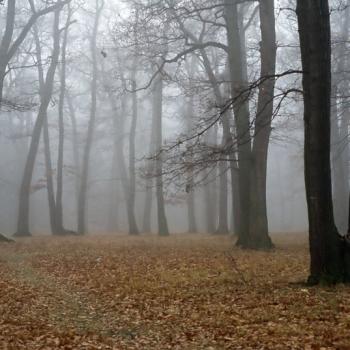On October 7, 2023, when I woke up to the news of the Hamas attacks on over 1300 innocent Israeli citizens, I was horrified. The world was – and is – already grappling with one major war brought on by Vladimir Putin’s illegal invasion of Ukraine. On that otherwise beautiful autumn morning, I learned that the world’s most infamous conflict zone – a land holy to followers of three religions – had exploded into violence.
This violence has only continued over the past ten weeks, escalating into the killing of more than 15,900 Palestinians. Pope Francis has called for an immediate ceasefire and a two-state solution to the conflict – unfortunately to no avail.
Until now, I have not spoken publicly about this conflict. I have close friends with very strong opinions on both sides, and I was afraid of alienating any of them. I shook my head in dismay as people in the US essentially replicated this conflict on the other side of the world, as brutal attacks on Jews and Muslims have occurred. As I watch the daily news and hear reports of children being killed, my mind struggles to articulate a response. But silence is also a response.
In 2016 I traveled on a pilgrimage to Jerusalem, Bethlehem, and Hebron. I took a tour led by Usama Nicola, a Palestinian Catholic peace activist, whom I subsequently interviewed for this blog. Today, he is devastated by what is happening in his land. Looking back on our conversation from 2016, he responded to the conflict in the same way he is continuing to respond today:
Hamas is not all the Palestinians. I am against all forms of violence, from Palestinians and from Israelis. If there was no occupation, there would not be any resistance – armed or unarmed. According to Geneva Convention 4, the Palestinians have the right to resist the occupation. Again, I am against violence, but if there were no occupation, Hamas would not be there. When Ariel Sharon withdrew from Gaza settlement in 2005, it was not the end of the occupation. More than 600 people died because of the siege. It is complicated, and there are a thousand narratives on both sides. But there is one fact. I live under an occupation that is wrong and must end. Without equal rights, without a just solution, there will not be peace. Jesus said blessed are the peacemakers, not the peace talkers.
As Catholics, we are called to respond to war and conflict both at home and farther afield. We are called to love our neighbor – and as Jesus’ parable of the Good Samaritan reveals, the so-called foreigner is our neighbor. We can respond by educating ourselves on the background of this conflict, seeking out a variety of perspectives. We can respond by urging our elected officials to make decisions that will lead toward peace. Most fundamentally, we can respond by praying for innocent civilians everywhere who are suffering the effects of war and violence.
For me, prayer has truly been my foremost response. During the season of Advent, Christians all around the world are engaged in the act of prayerful waiting for the Messiah. For me, the readings from Isaiah that have begun each Sunday Liturgy of the Word are gut-wrenching. On December 3, we heard the prophet’s powerful expression of yearning:
Oh, that you would rend the heavens and come down,with the mountains quaking before you,while you wrought awesome deeds we could not hope for,such as they had not heard of from of old.No ear has ever heard, no eye ever seen, any God but youdoing such deeds for those who wait for him.Would that you might meet us doing right,that we were mindful of you in our ways!Isaiah 64: 2-4
Comfort, give comfort to my people,says your God.Speak tenderly to Jerusalem, and proclaim to herthat her service is at an end,her guilt is expiated;indeed, she has received from the hand of the LORDdouble for all her sins.Isaiah 40: 1-2.
I rejoice heartily in the LORD,
in my God is the joy of my soul;
for he has clothed me with a robe of salvation
and wrapped me in a mantle of justice,
like a bridegroom adorned with a diadem,
like a bride bedecked with her jewels.
As the earth brings forth its plants,
and a garden makes its growth spring up,
so will the Lord GOD make justice and praise
spring up before all the nations.Isaiah 61:10-11.
come to save us without delay!” Indeed, we must implore our Savior to come anew into the broken world. And, we must do the work to bring Him here.












